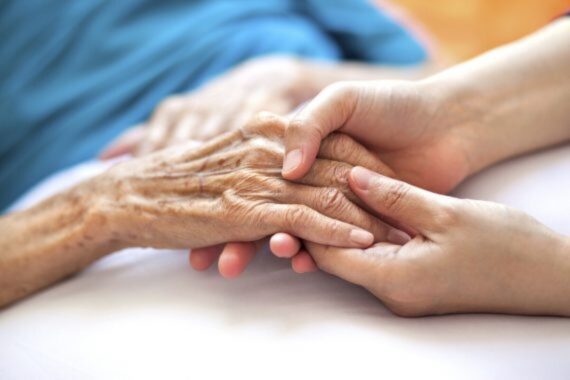The UK Government must consider the implications of laws to allow assisted dying being passed in Scotland, Jersey and the Isle of Man over the next few years, MPs have warned.
A Health and Social Care Select committee report, intended to act as a ‘comprehensive and useful resource’ for future debate on assisted dying, said it looks ‘increasingly likely’ that at least one UK jurisdiction will allow it in the near future.
Ministers should be actively involved in discussions on how to approach the divergence in legislation, it said.
It follows an inquiry looking at the current law, international examples of where assisted dying either after a diagnosis of terminal illness or for intolerable suffering had been made legal as well as involvement of physicians and assessments of eligibility and capacity to give informed consent.
In the lengthy report – which provides no resolution to the debate on assisted dying – MPs also looked at palliative care where it found ‘patchy’ provision and called on the Government to ensure equitable access.
But looking to other countries it also found no indications that palliative and end-of-life care had deteriorated in quality or provision following the introduction of assisted dying. In some places it had improved, the report noted.
As part of the inquiry, the Committee visited Oregon, which became the first US state to legalise the practice. Despite many examples internationally of changes to the law on assisted dying, the report found that jurisdictions legalised it recently so there is still ‘very much to learn as time passes’.
On the involvement of doctors in assisted dying the committee heard they would undoubtedly have an important role in any system that would potentially be introduced. They had heard a wide variety of opinions from those who were supportive but would not participate, those who would be content to be involved and those who were completely opposed, the report said.
‘We heard evidence that in the event that Parliament were to legislate for assisted dying, a decision to participate should be freely taken by the individual healthcare professional and never imposed on them,’ the committee concluded.
Steve Brine, chair of the Health and Social Care Committee, said: ‘The inquiry on assisted dying and assisted suicide raised the most complex issues that we as a committee have faced, with strong feelings and opinions in the evidence we heard.
‘We intend the information and testimony we present in our report today to have a lasting legacy and, as we set out in the initial terms of reference, be a significant and useful resource for future debates on the issue.
‘That could still be during this Parliament of course or after the next General Election.’
He added that the committee was particularly grateful to those who shared very difficult personal stories.
Dr Andrew Green, BMA medical ethics committee deputy chair, said: ‘This lengthy and detailed report is indicative of the complexity of assisted dying as an issue and the strength and range of views it generates.
‘As in the wider population, this breadth of views exist within the medical workforce – not least because, as the report notes, any change in the law would significantly impact doctors and their professional lives.’
He added that as detailed by the select committee, the BMA has held a neutral position on assisted dying since 2021.
‘This means we will not actively support or oppose a change in the law, but will continue to represent our members.
‘During recent discussions we have identified a number of issues that would need to be addressed if there were to be any change in the law, including: only those doctors who positively choose to provide assisted dying should be able to do so, the freedom for doctors to refuse to carry out activities that are directly related to assisted dying for any reason, and protection from discrimination and harassment for any doctors involved.’
Pulse October survey
Take our July 2025 survey to potentially win £1.000 worth of tokens












